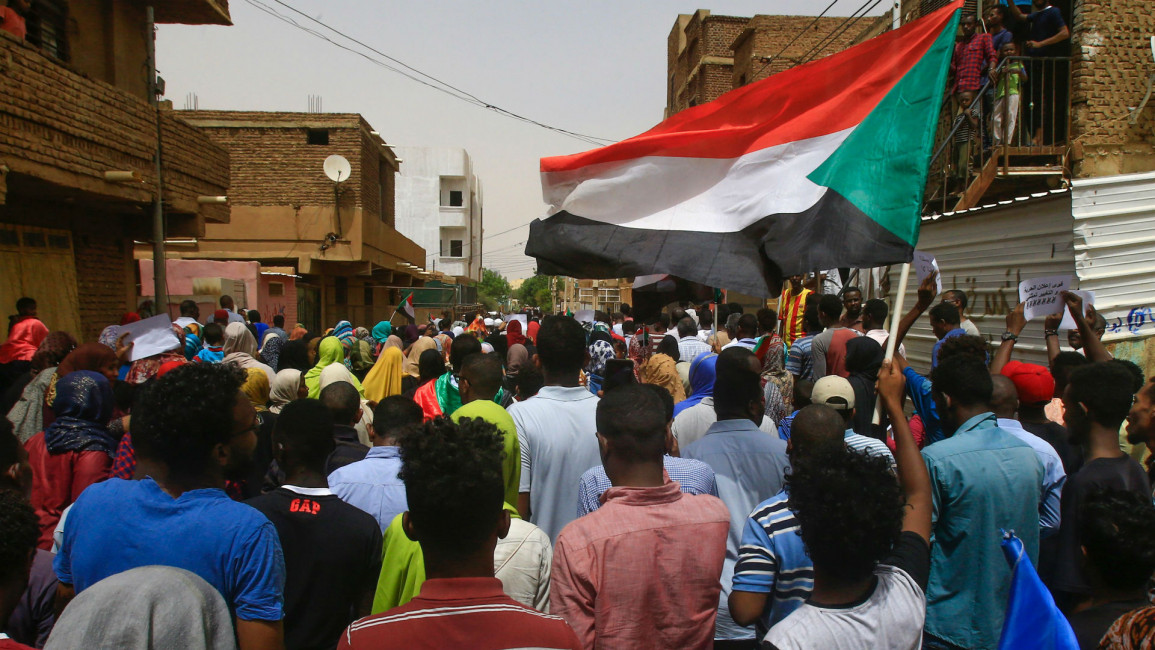Sudan's military backer UAE urges dialogue to avoid violence
"It is important for dialogue to continue in Sudan away from disputes and towards an agreement regarding transition arrangements," Minister of State for Foreign Affairs Anwar Gargash wrote on Twitter.
He said any transition should guarantee the establishment of a stable constitutional system.
The comments came after Sudanese protest leaders on Monday called for the nationwide campaign on July 14, just a day after they organised mass protests against the ruling generals who took over following the ouster of longtime leader Omar al-Bashir in April.
The move, which aims to increase pressure on the generals to hand power to a civilian administration, will be preceded by further mass protests on July 13, protest leaders said
"It is essential to avoid confrontation and escalation. It is clear that the opposition and the army need each other and need to reach agreement and avoid escalation of the crisis," Gargash said.
Calls for the civil disobedience campaign, the second such general strike in less than a month, came as the two sides traded blame for violence during Sunday's "million-man" that left 10 dead and scores wounded.
State media reported that seven people were killed on Sunday when tens of thousands rallied to demand a civilian government, while medics linked to the protest movement said five protesters had been killed.
Sunday's "million man" march had been seen as a test for protest organisers after a June 3 raid on a Khartoum protest camp left dozens dead and a subsequent internet blackout curbed their ability to mobilise support.
But that did not prevent vast crowds of men and women, chanting slogans demanding "civilian rule", flooding the streets of Khartoum, twin city Omdurman and other towns and cities, AFP correspondents and witnesses reported.
Read more: Comment: The Arab autocracies blocking Sudan's path to democracy
Security forces were deployed en masse in key Khartoum squares, firing tear gas in several areas including at protesters attempting to reach the capital's residential palace.
Protest leaders blamed the generals for Sunday's bloodshed.
"The military council is completely responsible for these lives lost," prominent protest leader Mohamed Naji al-Assam said in a video posted on his Facebook page.
"Peaceful Sudanese protesters are exposed to excessive violence, live bullets and beatings," he said.
But, he added, "the Sudanese have proven that they will not back down".
Tension remains high between the protest leaders and generals since the June 3 raid, when armed men in military fatigues shot demonstrators who had camped for weeks outside army headquarters.
According to the doctors' committee, at least 136 people have been killed since the raid, including more than 100 on the day of the crackdown.
Health ministry figures show 68 people have died nationwide since the raid, including those killed on Sunday.
The generals insist it did not order the dispersal of the sit-in, but acknowledge "excesses" after orders were given to purge a nearby area allegedly a notorious hotspot for drug dealers.
The raid came after talks between the protesters and generals collapsed over installing civilian rule.
'Foreign intervention'
Ethiopia and the African Union have been mediating between the two sides but have yet to achieve a breakthrough.
France has backed Ethiopia-African Union efforts as it urged a swift solution to the crisis in Sudan.
Regional allies Saudi Arabia, the UAE and Egypt came forward as early enthusiastic supporters of the military junta when it seized power from former President Omar al-Bashir last month.
Protesters have long accused the military junta currently wielding power as having been given a green light from backers Saudi Arabia, the UAE and Egypt, pointing out that they may have influenced the UN’s failure to issue a resolution against the violence consuming Sudan's capital.
Demonstrators have repeatedly accused the three allied nations of attempting to steer the country's uprising in the same direction as Egypt's revolution - that is, securing the long-term rule of the military rather than handing over power to civilians.
"The revolution has since its beginning last December been an orphan," Babaker Faisal, a leader in civilian negotiating body and leading opposition organisation the Alliance for Freedom and Change (AFC), said in May, just days after Burhan's deputy Mohammad Hamdan Daglo, widely known by his nickname Hemedti, met with Saudi de-facto ruler and Crown Prince Mohammed bin Salman.
"It has remained a purely Sudanese revolution. No support has been found for it among the countries of the region or in the international community, and so it will remain Sudanese until its goals are realised," Faisal said, commenting on recent visits to Saudi Arabia, the UAE and Egypt by the country's military rulers.
Follow us on Twitter: @The_NewArab



